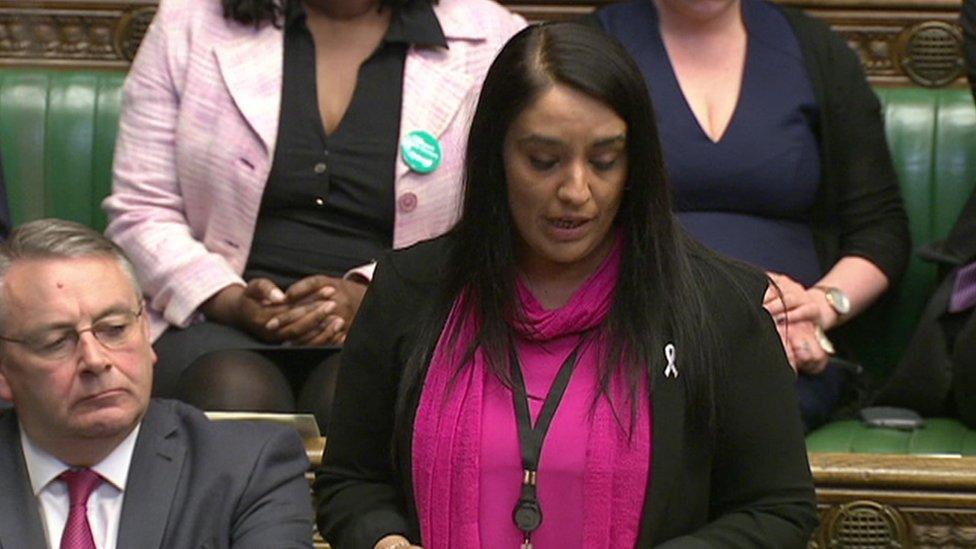Anti-Semitism row bolsters Jeremy Corbyn's Labour foes
- Published
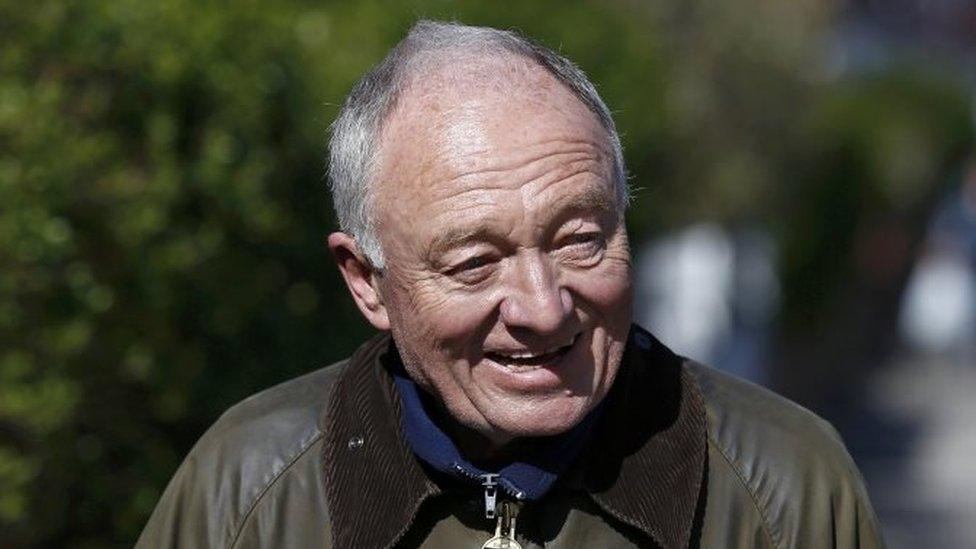
"There is a lot more in this anti-Semitism issue - a lot more. And the people we will take out are all close to Corbyn."
That's what a Labour MP confided to me more than a week before Naz Shah's Facebook activities were exposed.
There is no suggestion that this particular MP was involved - and equally no suggestion that the shock felt by long standing Labour Party members at anti-Semitic comments by newer recruits is synthetic.
But for those opposed to Jeremy Corbyn's leadership, the week could hardly have gone better.
There is a consensus that anti-Semitism in the Labour Party is not widespread.
That contributed to Jeremy Corbyn's unfortunate "crisis? What crisis?," comments which suggested to some that he wasn't serious enough about tackling a small but highly toxic problem before it became a big and highly toxic problem.
At a recent meeting of the Parliamentary Labour Party, concerns were expressed that the wrong impression was being given and that there had to be swifter and more pro-active action to root out anti-Semitism.
Chain reaction
So Jeremy Corbyn's failure to suspend Naz Shah ahead of Prime Minister's Questions on Wednesday - allowing David Cameron to berate him - allowed the Labour leader's critics to question the competence of his leadership as well as the substance of the issue.
But Ken Livingstone's remarks on Hitler and Zionism were a bonus.
Because this has already set off a chain reaction of challenges for the Labour leadership.
It has forced Jeremy Corbyn to use disciplinary procedures, which he dislikes.
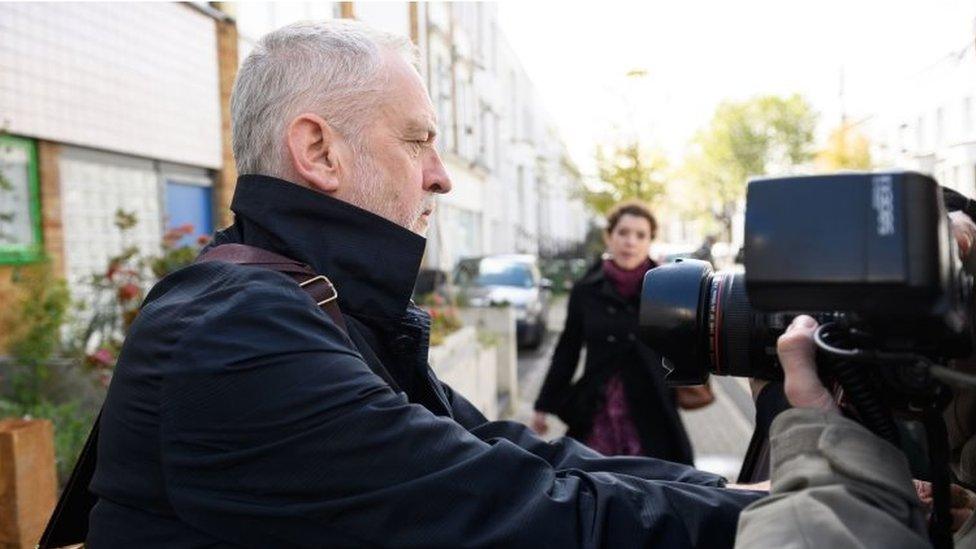
He fought against the "witch hunt" and expulsion of ultra-Leftists in the 1980s, and as leader he wants to open Labour's doors to those to the left of the party to help build a more radical party and movement.
But now his critics are forcing him to at least lay the foundations of the walls to be built around Labour's broad church and to make clear some people, and some views, just aren't welcome.
This, in turn, is likely to make him look weak in the eyes of some of his supporters who joined Labour in order to vote for him as leader.
Then there is the question of what happens to Ken Livingstone - seen as a close supporter of the leader - after he has been investigated by party officials.
If he isn't expelled, Jeremy Corbyn again will be portrayed as soft on anti-Semitism - a charge which deeply offends him.
Pressure
If Livingstone is expelled, not only will Jeremy Corbyn have lost an articulate high-profile ally, some on the left will be dismayed that the party leader hasn't been clear enough about the distinction between anti-Zionism and anti-Semitism, potentially opening up the possibility of a further purge of supporters.
That said, it was significant that Jon Lansman - a key figure in the pro-Corbyn Momentum movement -has not attempted to defend the former London mayor.
But then Tom Watson - the deputy leader with his own mandate - publicly fretted over the potential loss of seats in the forthcoming local elections in England because of the current adverse publicity.
Some Labour MPs are already planning to denounce a poor performance after these elections and they have just been handed more ammunition.
Pressure is also likely to mount on Jeremy Corbyn to distance himself not just from Ken Livingstone but from his own views.
'Wedge issue'
When he met the President of the Board of Deputies of British Jews in February, Mr Corbyn said he would "reflect" on the request not to meet representatives of Hamas or Hezbollah as Labour leader.
His critics feel there now has been enough time for reflection and are calling for a decisive statement.
But what is most satisfying for his internal opponents is that they feel they have found a "wedge" issue to detach him from some of his support.
Many of his MPs don't like his views on a range of issues but to attack him for - for example - wanting to scrap nuclear weapons merely strengthens his support amongst newer, more left-wing members.
But while some of those members may have made offensive comments, many, many more despise anti-Semitism - so Jeremy Corbyn's reaction to those accused of it will be scrutinised closely by them.
The anti-Semitism row could yet become the "soft underbelly" of his leadership.
- Published28 April 2016
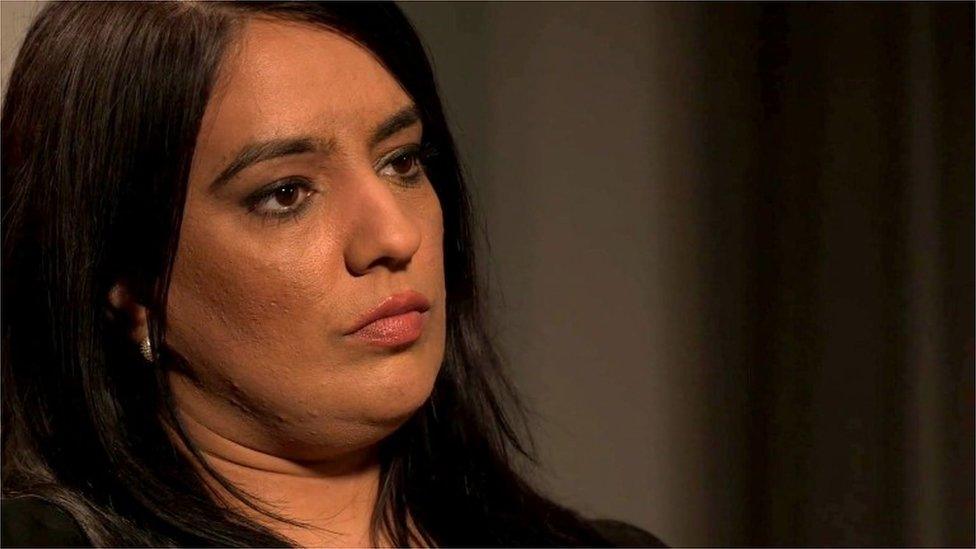
- Published28 April 2016
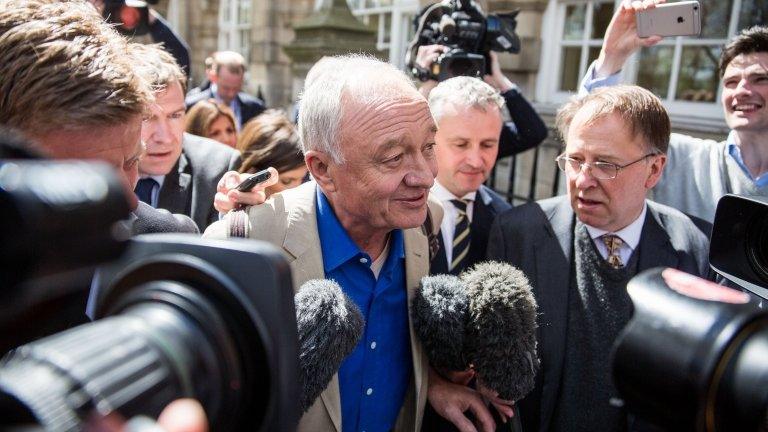
- Published27 April 2016
